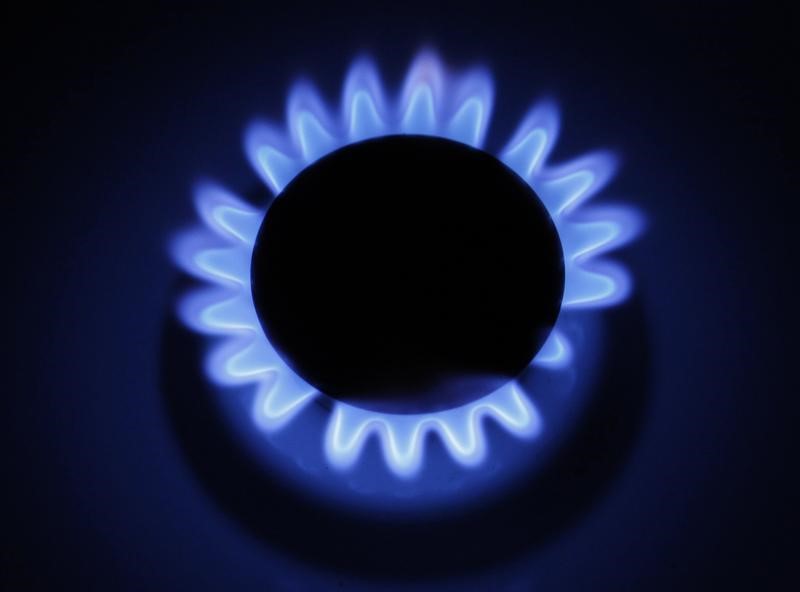
© Reuters.
NG
+0.88%
Add to/Remove from Watchlist
Add to Watchlist
Add Position
Position added successfully to:
Please name your holdings portfolio
Type:
BUY
SELL
Date:
Amount:
Price
Point Value:
Leverage:
1:1
1:10
1:25
1:50
1:100
1:200
1:400
1:500
1:1000
Commission:
Create New Watchlist
Create
Create a new holdings portfolio
Add
Create
+ Add another position
Close
By Barani Krishnan
Investing.com — There are signs the weather in the United States may be getting frightful at some point. But it don’t seem to be happening quick enough to stop the bears from driving natural gas futures down.
The front-month March gas contract on the New York Mercantile Exchange’s Henry Hub settled down 17.2 cents, or 6%, at $2.677 per mmBtu, or metric million British thermal units. It earlier plumbed a 21-month low of $2.646 — a bottom not seen since April 2021.
Temperatures in New York were forecast to reach below the freezing point of 32 Fahrenheit (0 Celsius) this week, with Friday low of 11F and Saturday bottom of 24F, in a breakaway from the prior week’s highs of above 50F.
Such temperatures typically signal that there will be huge draws from natural gas inventories by utilities seeking to provide adequate warmth to the top gas-fired heating market in the United States.
Even so, a weakening in the intensity of Arctic winds could temper the actual chill on the ground, according to forecasts by the U.S.-based Global Forecast System, GFS, and the European ECMWF weather models which are more closely followed by gas traders.
“Presently, the GFS and the European ECMWF models are touting a decline in the amount of accumulated Gas-Weighted Degree Days (GWDDs) over the current two-week period,” said Gelber & Associates, a Houston-based consultancy for energy traders.
“At this juncture, the polar air that has been amassing over northern Canada will not cascade down into the lower 48 states, similar to the late December winter event. Only a small pool of frigid temperatures will plunge into portions of the Northeast and New England in the near-term outlook instead of dominating most of the nation,” the Gelber note said.
The March gas contract on the Henry Hub showed relative stability toward the end of last week when it moved just a cent at Friday’s close from Thursday’s settlement of $2.848.
That led to the notion that the market may have bottomed from the six-week selloff that took the front-month contract to $2.761 on Thursday.
But Monday’s renewed plunge in March showed short-sellers behind the 60% plunge in natural gas pricing since the week ended Dec. 9 weren’t done yet.
“At the current crossroads, gas market bears remain in the control of the driver’s seat and could be targeting the $2.60/mmBtu to $2.50/mmBtu area as a downside objective for NYMEX March 2023 natural gas futures in the near term, due to the milder near-term temperature outlook,” Gelber’s analysts said.
Due to weak consumption, U.S. gas in storage stood at 2.729 tcf, or trillion cubic feet, at the close of the week to Jan. 20, up from the year-ago level of 2.622 tcf, according to a weekly update provided by the Energy Information Administration.
The meltdown in gas pricing came after an unusually warm start to the 2022/23 winter that led to a collapse in demand for heating fuels. Prior to the selloff, the Henry Hub’s front-month hit 14-year highs of $10 per mmBtu in August, and even traded as high as $7 in December.
Source: Investing.com




























